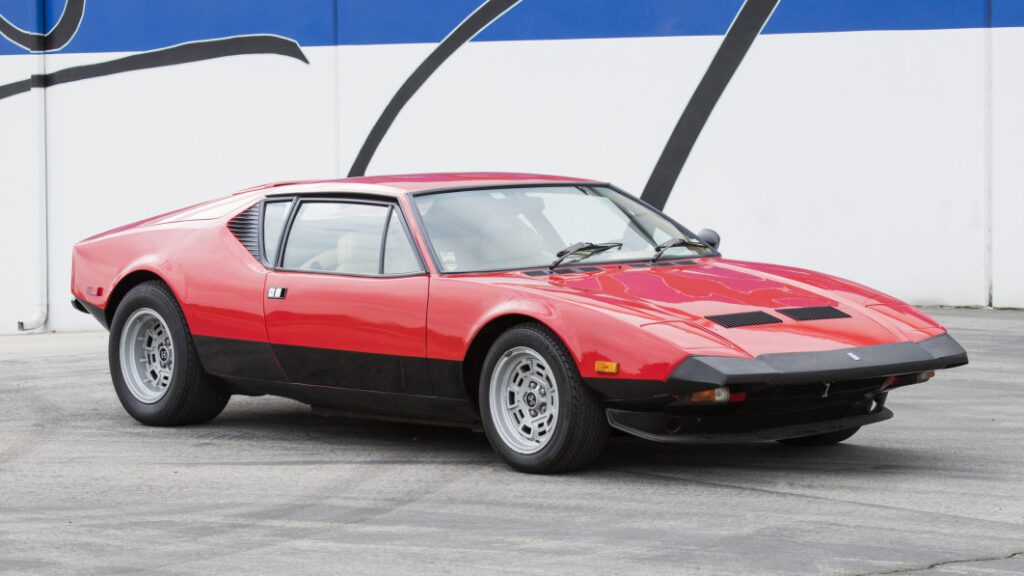De Tomaso supercar revival hits speed bump with lawsuit against founder

A planned revival of Italian sports car brand De Tomaso as a maker of $1 million supercars appears to have hit a speed bump with lawsuit against the founder by the former chief executive officer.
Ryan Berris, who joined De Tomaso Automobili Holdings NA in 2014 as CEO and lead developer of its planned P72 supercar, sued the company and its founder, Hong Kong financier Norman Choi, on Wednesday in Manhattan federal court. Berris claims he was fired last year because he stood in the way of Choi’s plans to move forward with a blank-check merger based on false information.
“Choi became obsessed not with making the perfect automobile to resurrect De Tomaso and to serve the company’s discerning clients, but instead with trying to take the company public through a bogus SPAC process,” Berris said in the complaint.
Berris claims he’s owed hundreds of thousands of dollars in compensation and a 10% stake in the company that was once valued at as much as $1.5 billion.
The press office for De Tomaso didn’t immediately respond to a request for comment. Choi couldn’t immediately be reached for comment.
De Tomaso, best-known for the Mangusta and Pantera sports coupes it introduced in the 1960s and 1970s, filed for bankruptcy in 2004. Rights to its name were eventually acquired by Choi and a partner in 2014.
According to Berris, Choi reached out to him shortly thereafter, and the two met at a racetrack in Spain. At the time, Berris was working for Scuderia Cameron Glickenhaus (SCG), a US manufacturer of high-performance racing and road cars whose SCG007 hypercar would go on to take the podium at Le Mans in 2022.
“Desperate to avoid failure, Norman Choi pleaded with Berris to take over the company and create a world-class, credible revival of the famed De Tomaso brand,” Berris’s lawyers at Boies Schiller Flexner LLP wrote in his complaint.
Berris says he agreed and went on to develop the P72, which was unveiled at the 2019 Goodwood Festival. An homage to the De Tomaso P70, a 1965 legendary prototype co-developed by Alejandro De Tomaso and Carroll Shelby, the new car with a $1 million base price proved a sensation and, within a few days, received more legitimate purchase inquiries than the planned 72-unit limited run, according to the suit.
By early 2022, De Tomaso had received about $36 million in nonrefundable deposits, with demand far exceeding supply, Berris claims. According to his suit, Berris sought to raise more money to boost production of the P72, but Choi started taking a different approach.
$10 million apartment
“Choi began to cut corners behind Berris’s back, conjure false financial statements, and mislead the discerning customers who were already putting down their sizable deposits for De Tomaso’s vehicles,” Berris claims.
The former CEO claims Choi breached his fiduciary duty to De Tomaso by using more than $10 million in company funds to buy himself an apartment at Manhattan’s Hudson Yards. Choi was keen to pull in even more money through a SPAC deal, Berris claims.
Choi allegedly told SPAC investors in financial statements that he put $3.1 million of his own money into De Tomaso, but Berris claims Choi made it clear in a text message to him that the money came from Sino Vision Worldwide Holdings Ltd.
According to the suit, Sino Vision is a shell company associated with the so-called Enigma Network — a group of 50 Hong Kong companies identified by shareholder activist David Webb as stocks to avoid due to their questionable business practices and lack of transparency. Berris said many companies controlled by Choi were associated with the network.



